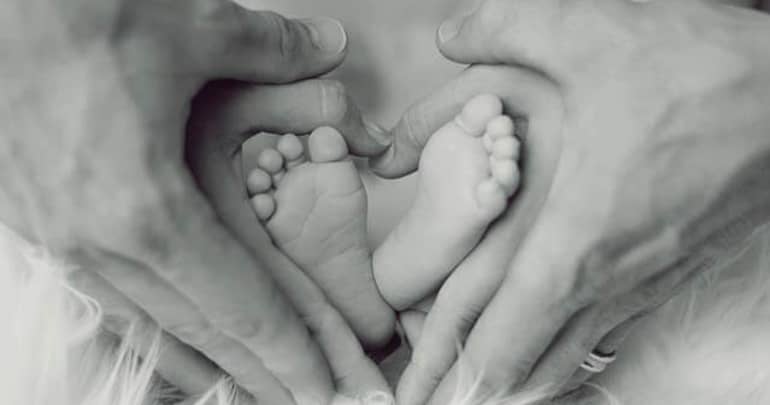The influence of family addiction and alcoholism runs deep. Whether it’s difficulties with personal relationships or additional substance use problems, learn more about how addiction affects families.
Those who spend even a little bit of time around a recovery community of any kind will hear the phrase at some point: addiction is a family disease. If you have a parent, a sibling, or an extended family member who is an addict or alcoholic, you do not need any explanation of what that means.
Countless addicts and alcoholics live with the false belief or understanding that their drinking or drug use only affects themselves. This is especially true when they start to isolate from friends and family, choosing to spend most of their time getting drunk or high alone. They may live by themselves or spend most of the time they are under the influence away from the home. They feel that their behavior doesn’t impact anyone else.
This couldn’t be further from the truth.
The behavior of an addict or alcoholic, whether present or absent, affects everyone closest to them. If they are present, their often erratic and unpredictable actions dampen anyone’s mood. If they are absent, this encourages feelings of abandonment in their loved ones. Whether they are at home or away and whether they know it or not, their drinking and drug use impacts more than just themselves.
Family Addiction: It’s In the Tree
Research has yet to determine one single “cause” of addiction. Instead, the current understanding is that two main factors influence whether someone will develop a substance use disorder: genetics and environment.
Not only is addiction a family disease in terms of the influence of an alcoholic or addict’s actions, alcoholism and addiction often “run” in families. This isn’t always the case but when you see someone with a substance abuse problem, the first place to take a look at is their family.
Alcoholics and addicts often have either a parent or a sibling who also drank heavily or used drugs. This isn’t to say that everyone with an alcoholic parent will also become an alcoholic. However, children learn most from watching what their parents do. They may spend their entire childhood watching their mom or dad struggle with a substance use disorder.
When they learn about how substances affect their own mood, they may turn to drugs or alcohol as an escape. Some adult children of addicts or alcoholics, when explaining their first time trying a substance, say, “now I understand why my parents used the way they did.”
Siblings also provide an influential role in a child’s life. If a brother or sister brings their substance use into the home, it provides an example for a child. It’s clearly a negative influence but younger siblings often try to mirror their older siblings.
Addiction, Families, and Codependency
You may have heard of the term codependency before. For those who have a member of the family with addiction or alcoholism, codependency is commonly present to some extent. What is it, though, and what does it have to do with alcohol and drug abuse?
Codependency refers to behavior in a parent, sibling, or close friend that enables the addict or alcoholic’s substance use. It might be through providing a place to live, financial assistance, or simply continuing to support their drinking or drug use.
If this is you, it might seem like you are helping your loved one. After all, what would they do if you weren’t there to get them through their struggles? But sometimes that’s exactly what someone with a substance use disorder needs; no one left to support them.
It isn’t necessarily codependent to offer support if they show a sincere desire to get clean and sober. If they continue using up chances and continuing to use, though, you cross into codependent territory.
Are you or your loved one struggling with meth addiction?
If you or your family member is struggling with a meth addiction there are some facts you should know about.
Recovering from the Influence of Addiction in the Family
Whether or not you develop your own problem with substance use, your family member’s use had an impact on your life. There may be some unhealed traumatic memories or unhelpful behavioral patterns leftover from your childhood.
Many children with alcoholic parents or siblings develop control issues after moving out of their home. After feeling out of control for years, they may overcompensate on their autonomy. Some children must take over the role of parent to their siblings if their own parent is absent; taking control of a situation was their only way to survive for years.
Do you notice some patterns of behavior in your own life that are troublesome or problematic? Or do you have a difficult time trusting or connecting with people after not being able to trust those closest to you?
You are not alone. On average, there are 8.7 million children under the age of 17 living with at least one parent who is an addict or alcoholic. In other words, more than 12 percent of children grow up in a home affected by substance abuse.
Number and percentage of children aged 17 or younger living with at least one parent with a past year substance use disorder

There are facilities like Hawaii Island Recovery that can help you heal from the impact on your childhood. If you have a difficult time letting go of the experiences you went through, our certified counseling staff can help. Whether you developed your own struggles with drugs and alcohol or you just need some help, we are here.
You do not have to deal with the impact of family addiction or alcoholism
by yourself. Reach out for help and you will find it is there! Call us today at 877-721-3556 to learn more about options available to you.
 Hawaii Island Recovery
Hawaii Island Recovery 










